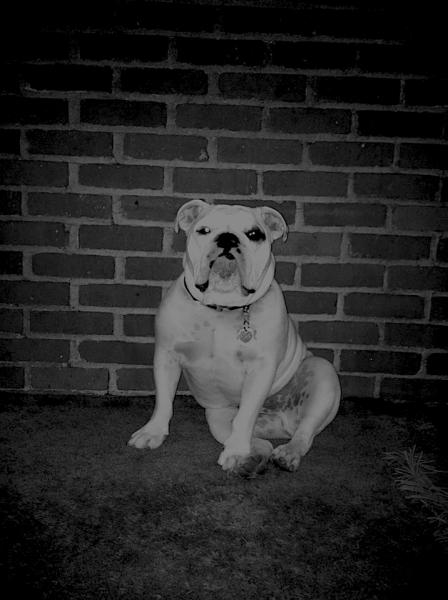
Parasites
Submitted by captainy on February 26, 2013 - 7:56pmWe lived in NOLA for from the time Chef was born until he was 13 months old. In the city. Walked down the Bourbon street all the time. Never had a problem.
Move to Indianapolis. 2 weeks ago I was told he has Giradia. Fine, gave him some meds. Yesterday they retested him. Giradia is cleared up, but not he has ciccodica. WTF?
We have not taken him to any dog parks or daycares. We want to take him because he is in desparate needs of socialization, but of course we can't. The only thing we do is take long walks around the city.
We live in an apartment and do not have a choice but to walk him around. There are quiet a few dogs in the area, so I can't be sure where it's coming from. Would not be surprised if we are just passing around to each other.
Is there anything we can do or are we doomed to have this be a regular thing?

Chef D's Mug Shot


Coccidia
Do a google search - Wikipedia
The disease spreads from one animal to another by contact with infected feces or ingestion of infected tissue.
Don't let him eat stuff off the ground or drink out of puddles. Coccidia is nasty stuff.
he doesn't eat stuff off the ground.
Had never drank out of a puddle. Actually, he avoids puddles altogether by walking around them.
Chef D's Mug Shot
How they get coccidia ... he could simply have licked a paw
Coccidia are tiny single-celled parasites that live in the wall of your dog’s intestine. They are found more often in puppies, but they can also infect older dogs and cats.
Dogs become infected by swallowing soil that contains coccidia or other substances in the environment that may contain dog feces.
How will coccidia affect my dog?
Coccidiosis, the disease caused by coccidia, may not cause any signs in dogs but is usually more serious in puppies. The most common sign of coccidiosis is diarrhea. More severe infections can cause bloody diarrhea. Severe infections, especially in puppies, can kill them.
How do I prevent my dog from getting coccidia?
Coccidial infections can be prevented by removing your dog’s feces regularly from your yard or other areas where the dog goes to the bathroom. Because coccidia are found most often in puppies, it is important to have puppies examined for the parasite as soon as possible. Your veterinarian can perform a fecal test to diagnose coccidiosis. If your dog is infected with coccidia, your veterinarian is able to give it effective medications.
Control
It is very likely the other dog/dogs have it and it is being passed around. Unfortunately it is difficult to control when you have to use public areas to potty him. I can't find if they are more suspectible to get it again if they have had it once or not. I'll keep looking.
Because coccidia is spread by the feces of carrier animals, it is very important to practice strict sanitation. All fecal material should be removed. Housing needs to be such that food and water cannot become contaminated with feces. Clean water should be provided at all times. Most disinfectants do not work well against coccidia; incineration of the feces, and steam cleaning, immersion in boiling water, or a 10% ammonia solution are the best methods to kill coccidia. Coccidia can withstand freezing.